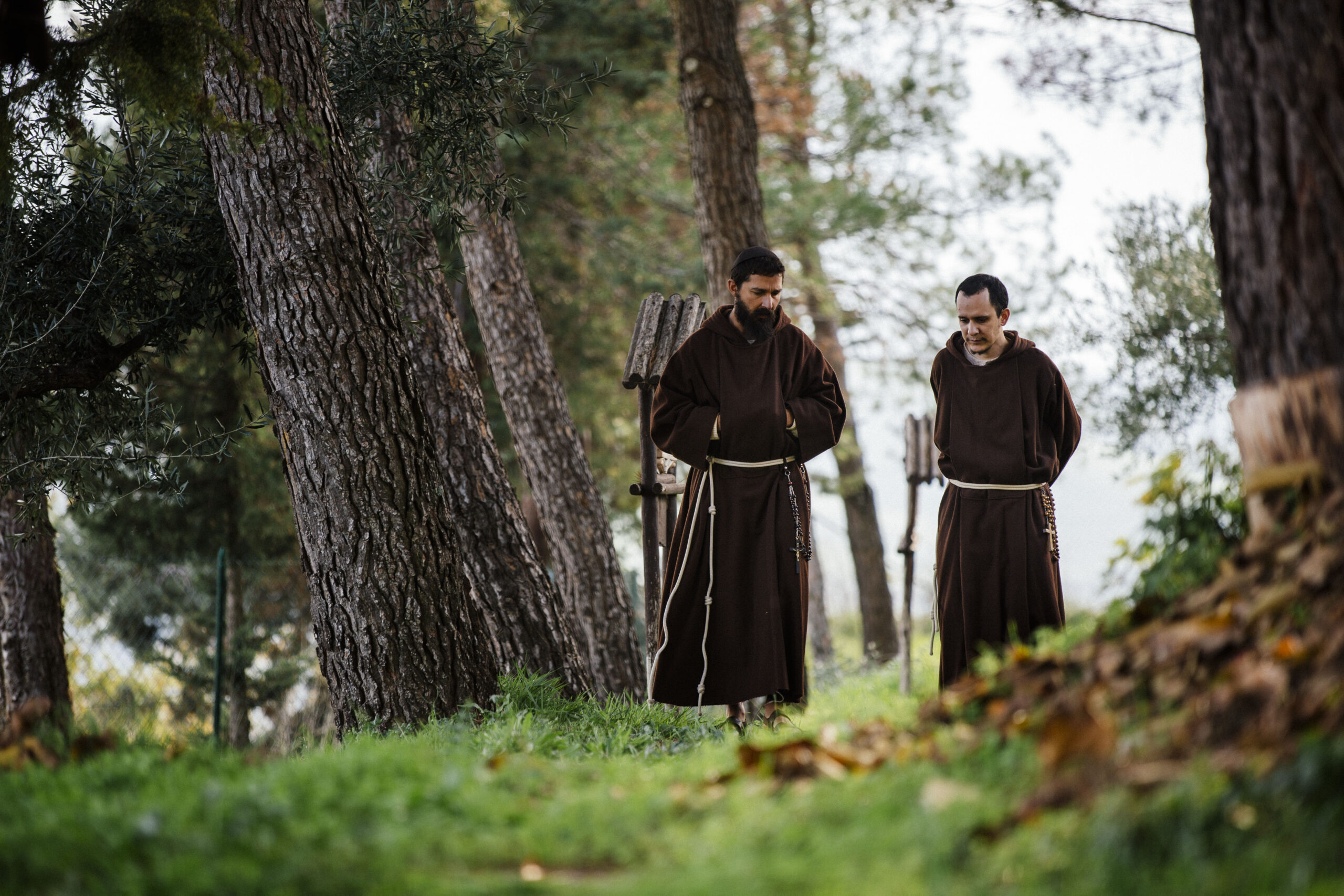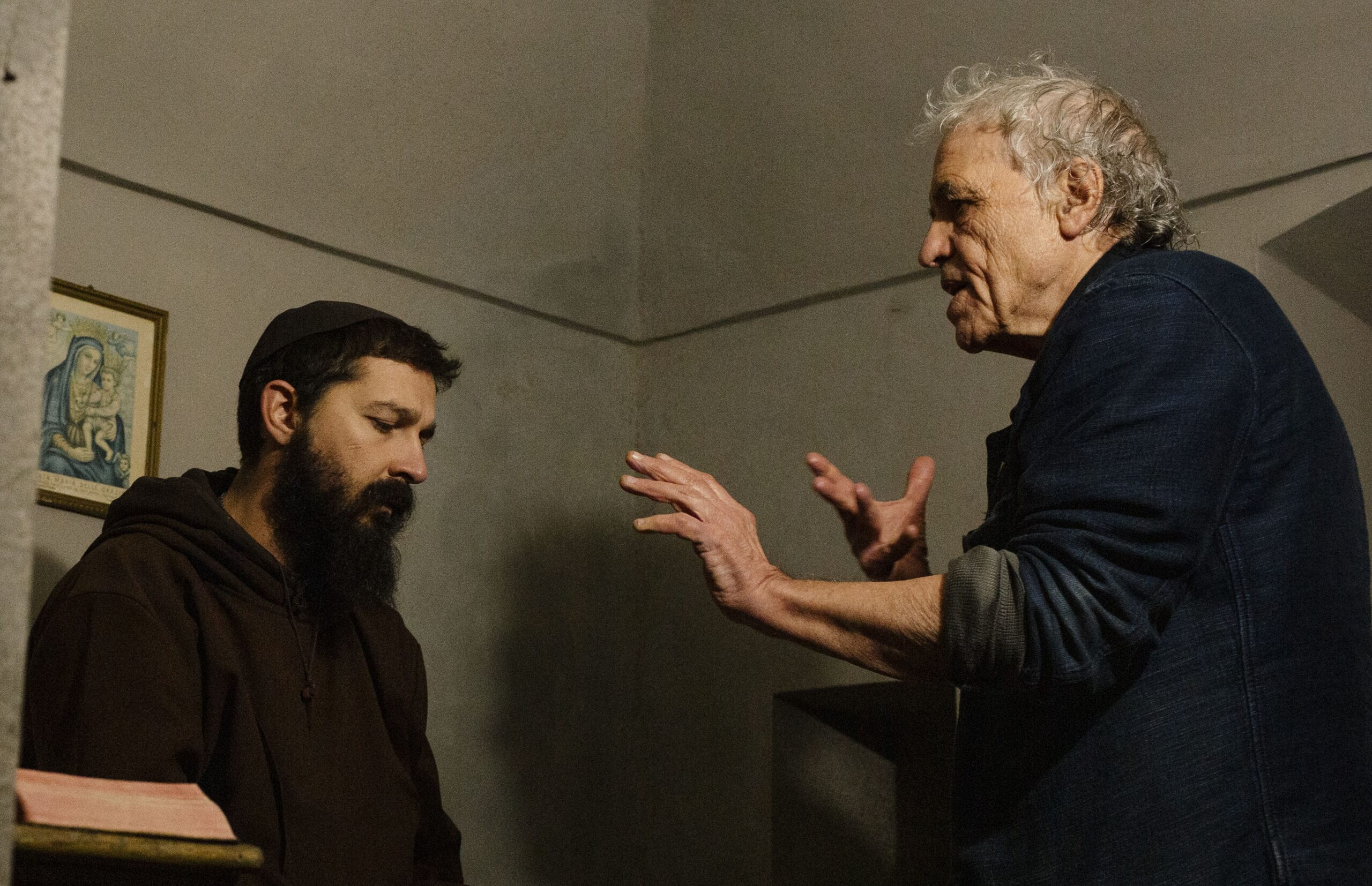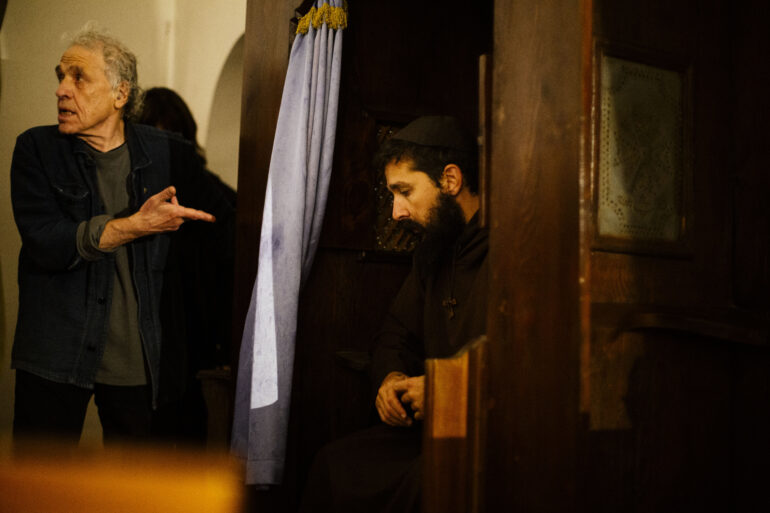I recently got to speak with legendary filmmaker Abel Ferrara (King of New York, Driller Killer and many more) about his new film Padre Pio starring Shia LeBeouf.
In the film World War I has ended and Italian soldiers, broken but victorious, are returning to an impoverished village ruled by wealthy landowners. As events surrounding the first free election in Italy threaten to tear the village apart, Padre Pio struggles with his own personal demons, ultimately emerging from his spiritual anguish to become one of Catholicism’s most venerated figures.
Hi Abel, thank you so much for taking the time to chat with me. How are you?
I’m good. It’s nice to meet you. Where are you?
I’m in Scotland right now on vacation visiting my family, but I live in Toronto normally.
Okay, awesome.
So, we’re going to be talking about your new movie Padre Pio which you co-wrote with Maurizio Braucci; how did the idea come up initially and what made you want to explore his early life in this film?
I felt the struggle is that everybody kind of knows him, the image of him; you think he was only older, as a saint, no one can imagine him younger. You very rarely see where he started in life; what was he like when he was 27 or 28 or 30. He wrote a lot of letters at this point in his life, which gave us a real insight into where the guy was coming from. At the same time, this was the moment of his stigmata, which was one of the miracles that made him a saint and this historical event in Italy, the birth of fascism, the beginning of World War Two, this massacre in the small town, which was the first time this really happened, so it was a lot of things.

What is the process like having two writers?
He’s the writer, I’m just writing as the director, but Maurizio Braucci wrote Pasolini with me, so he might deserve a lot of the credit there. But I mean, I did write the last few moves. It’s great. I mean, we were very connected and we’re very close friends. We both really wanted to do this. It was a challenge, bro but like with Pasolini I couldn’t have done it without him. He’s also on the set helping me direct; it’s like this very deep relationship I have with Maurizio.
I believe Shia LaBeouf converted to Catholicism for this movie. How did you react when you heard that?
Well, he had already converted before we started filming, so I got him ready in that period. It was like it was kind of meant to be; once he said that, then I realized ”yeah, and I’m talking to him for the right reasons”. His personal journey mirrored the character in a way, where it was like he needed Pio at that moment.
The film was almost a catharsis for him…
Yeah, I would say so.
How challenging is it to create a film based on a real person, especially a Saint?
I don’t let that affect me too much. I mean, it is what it is; I got my talent, I got my ability and I just trust my instinct; I trust my technique and I do the best I can. What happens happens.
How do you approach creating the sound and music for the film? I particularly liked the choice of the blues guitar theme at the end.
Yeah, we used that original blues music and we’re using also the very traditional folk song from that period; both were right on cue of the period. Joey, our composer, I’ve worked with him forever. So, he’s scoring, he’s writing and listening to the stuff right from the beginning, then as we’re shooting and then in the editing room we have the material and we’re editing with music. Some we add right at the end.

How hard is it to finance a film like this, particularly these days whenever it’s not a big budget superhero movie?
Yeah, financing is difficult. It’s always been difficult. I mean, difficult – it’s part of the gig. You’ve got to express your ideas to people, you got to find people who are compatible and simpatico to what you’re doing. You’ve got to give them a feeling that what you’re going to do matters. Some take longer than others; this took a bit of a while, but we hung in there.
With the advent of streaming, do you think it’s going to get harder to make films like this or do you think it wouldn’t really change it?
I don’t think it’s going to change anything. I mean, streaming is just bringing a movie to more people closer to home. The bottom line is people tell stories to each other from the date man has walked on the earth, so what’s the right amount of cave wall – or however it’s happening? Filmmaking is a form of storytelling and how it’s being told, whether it’s projected at a movie theater, or on your computer, or streamed or you watch it on a phone. You’re basically expressing feelings and telling the story and expressing yourself to another human being, so why would that change?
Yeah, exactly. What would you like audiences to take away from the film?
I don’t look at it that way, man; if they come and see it, I just want them to be open to it. Feel it. Get it. Don’t come in cynical. Don’t come in with an attitude or with an expectation of what a movie might be or might not be. Just roll with it.
Thank you so much for taking the time to chat with me today and best of luck with the film.
Thank you, bro. Take care.






